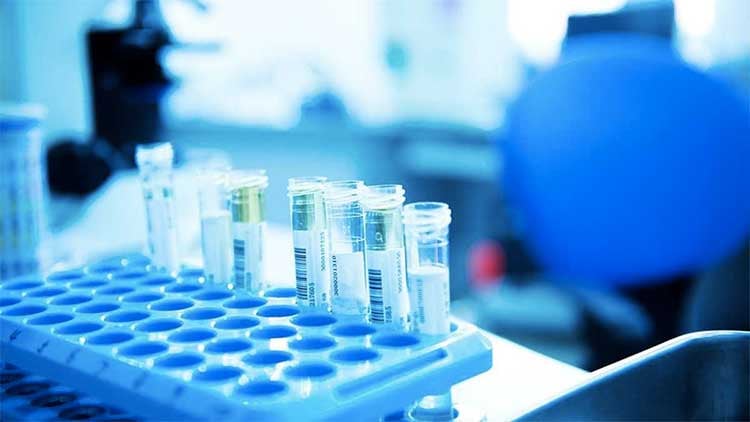Australian-based bio-separations and reproductive biotechnology company, Memphasys Limited (ASX: MEM), continues to make progress with the commercialisation of the company’s Felix System.

Felix separates sperm from raw semen by a proprietary process combining electrophoresis and size exclusion membranes. The process selects high quality sperm whilst excluding cellular contaminants such as leucocytes and precursor germ cells.
To MEM’s knowledge, there is no other sperm separation method currently in the global market offering the same combination of speed and quality of isolated sperm as the Felix System.
Status of Key Opinion Leader (KOL) assessment/ sales activities
Fourteen internationally recognised IVF Clinic key opinion leader (KOL) sites have been conducting in vitro assessments of the Felix System over the last 12 months. The majority of the KOLs (nine of 14) have completed these assessments.
All KOL data is received and reviewed by Memphasys’ Scientific Director, Distinguished Emeritus Laureate Professor John Aitken, based at Newcastle University, NSW. Professor Aitken has analysed the KOL results received to date, comparing in vitro measures of the sperm in unprocessed semen with post processing by the Felix System and also by Discontinuous Gradient Centrifuge (DGC), the most globally common sperm preparation method for IVF procedures.
Initial results have demonstrated that while both the Felix System and DGC were able to select sperm of high quality from the raw semen samples, the overall quality of recovered sperm from the Felix System was superior to DGC in a vast majority of cases, and in particular the level of DNA fragmentation was less.
Although the yield of sperm from the Felix System was less than the yield from DGC, there were sufficient sperm prepared by the Felix System for IVF processes, whether for use with ICSI (intra cytoplasmic sperm injection), now the most common IVF procedure, or for traditional IVF which typically requires a greater quantity of sperm.
Notably, the Felix System processed semen samples in six minutes whilst DGC required at least 30 minutes, which is a substantial advantage of the Felix System, especially in a busy IVF clinic.
A further analysis of a smaller number of KOL test results using the Swim Up technique, a less frequently used technique in the IVF industry, is now being evaluated by Professor John Aitken. Preliminary results have been shared with KOLs as part of the commercialisation of the Felix System.
Professor Aitken is now in the process of preparing a paper regarding the above to be peer reviewed and published in a substantive reproductive science journal.
Of commercial interest, MEM has achieved repeat clinical sales to one site in India1, being one of the early identified markets.
FDA pre-submission meeting planned
The company is preparing for a pre-submission meeting with the US Food and Drug Administration (FDA). Initial feedback from specialist regulatory consultants is that as the Felix System will be classed as a novel class II device and as there is no predicate device, it is likely to require a de novo submission. Further details on the pre-submission meeting and expected timelines will be reported when they come to hand.
Intellectual Property – Patents & Trademarks
Memphasys has received confirmation of the granting of a patent (No. 7058275) in Japan, expiring October 2037 for the unique hydrogel membranes used in the Felix System. The granting of this patent is in addition to the company’s suite of patents already granted in regions including the USA, China, UK, and Australia. The Felix trademark itself is registered in Australia, US, UK, EU, India, Japan, and Canada.
The granting of patents and the registering of the trademark in key markets is important in protecting what the Company believes will be a globally significant device for the IVF industry.
ISO 13485
Memphasys has received effective ISO 13485 certification of its quality management system. Achieving ISO 134895 accreditation means that processes, as documented in the company’s quality management system, required to design, manufacture and market a device such as the Felix System comply with the international ISO 13485 standard.
Monash IVF Clinical trial of Felix System
In support of planned regulatory filings in Australia and overseas, MEM is conducting a clinical study (FELIX- ICSI) in collaboration with the Monash IVF Group Ltd (ASX: MVF), a leading Australian reproductive and fertility services company.
The clinical study, which has received ethics approval, will assess the safety and performance of the Felix System vs Swim-Up (SU) and DGC, for couples suffering from male infertility factors, to isolate sperm from semen prior to its use for ICSI, a common technique used in IVF.
The clinical results, together with a comprehensive literature review, will be filed in a formal regulatory submission (conformity assessment application) to the Therapeutic Goods Administration (TGA) in Australia to support the Felix System achieving medical device ARTG certification to enable commercial sales in Australia.
These clinical data will also support Felix System registrations in other international jurisdictions.




